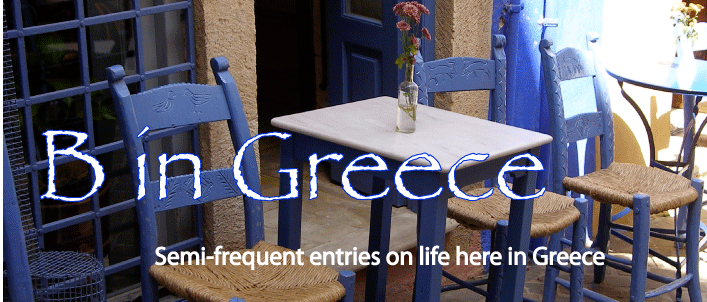
Last Thursday the 19th was Tskinopempti (Τσικνοπεμπτη), a sort of kick off for the Lenten season before the real fasting begins. The word Tskinopempti comes from two words, "tsikno" the smell of burning meat, and "pempti" for Thursday. This day is always two Thursdays before Carnival and Clean Monday (the beginning of Lent) and is celebrated with the eating of lots of meat. Since tavernas and personal grills everywhere are cooking up a variety of meats, the smell of burning (or grilled) meat is everywhere. And hence the name of the day.
Being a meat lover, this is easily one of my favorite religiously connected days. This is the 2nd year in a row that we've called up friends to join us for a meat filled meal. Reservations are a must at tavernas for this particular evening, otherwise there's no way you are getting in.
The place we went to this year is a little basement hole in the wall. It's such a locally known place (in it's particular neighborhood, not greater Athens) that they don't even have a sign outside. You can easily stroll by and not even know there's a restaurant there. They had the place all decked out with Carnival items and decorations stretched from lamp to lamp up above. All tables were given packets of streamers that we were welcome to toss around. By the end of the evening we had practically created a tent of them over out table.
As for the food, mmmmm meat! Some of the offerings were: kokoretsi (the innards of a lamb or goat, wrapped up in the small intestine and then cooked on a spit for a number of hours), paidakia (small lamb ribs topped with wonderful spices/herbs - pictured below), and pork in a variety of presentations. Of course, all of that can be served with delicious salads and other side dishes and followed down the gullet with your choice of red or white house wine (red please!).
After 4 hours of eating and talking (fairly evenly distributed) we were a full bunch heading out the door at 1am. After a night like that, you WANT to start a fast.




